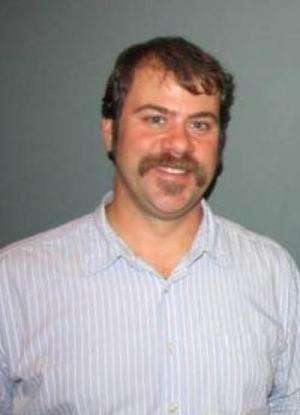UC Riverside plant pathologist receives national recognition

Jason Stajich, an associate professor of plant pathology and microbiology at the University of California, Riverside, has been awarded the 2014 Alexopoulos Prize by the Mycological Society of America, a scientific society dedicated to advancing the science of mycology – the study of fungi of all kinds including mushrooms, molds, truffles, yeasts, lichens, plant pathogens, and medically important fungi.
The award is peer-nominated and each year recognizes an outstanding early-career mycologist. Stajich received the award last month in East Lansing, Michigan, at the annual meeting of the Mycological Society of America. The award consists of a plaque and a monetary award of $1,000.
"I am honored to win the Alexopoulos Prize," Stajich said. "I have not yet decided how I will spend the prize money but I intend to support a project in the lab or to support travel for collecting more strains tied to chytrid work."
Nominees for the Alexopoulos Prize are judged on the quality, originality and quantity of their published work.
"Dr. Jason Stajich is an outstanding choice for the Alexopoulos Prize," said Katherine A. Borkovich, the chair of the Department of Plant Pathology and Microbiology. "Since starting his position at UC Riverside in July 2009, he has published more than 33 papers and review articles."
Stajich received his doctoral degree at Duke University in 2006. He held a postdoctoral appointment at UC Berkeley from 2006 to 2009. His research interests include using genomic approaches to study fungal biology and evolution, including fungal cell wall evolution, the evolution of multicellularity in fungi, and human pathogenic fungi. His work also focuses on building new methods for comparative and evolutionary genomics. His also co-leads a project to generate genome sequence and analyze 1000 fungal genomes.
Borkovich noted that some of Stajich's notable contributions are: sequence analysis of numerous fungal genomes that are hosted at his FungiDB website; the discovery of an active transposable element in Neurospora crassa; the finding that both genetic and non-genetic factors in pathogenic Chytrid fungi are contributing to the world-wide decline of host amphibians; and the identification of novel cell wall genes that may present new targets for development of antifungal agents with applications to medicine and agriculture."
Stajich is the recipient of a National Science Foundation graduate research fellowship and a postdoctoral research fellowship from the Miller Institute for Basic Research in Science at UC Berkeley. Since joining UCR, he has been supported by grants from the National Science Foundation, the National Institutes of Health, the Burroughs Wellcome Fund, the Alfred P. Sloan Foundation, and the W. M. Keck Foundation.
At the annual meeting of the Mycological Society of America last month, he presented research on the evolution of the fungal cell wall examining early diverging lineages of fungi. His graduate student, Steven Ahrendt, presented a poster on the inhibitory properties of a Chytridiomycota fungus that affects growth of some filamentous fungi. Ahrendt, who worked closely with Stajich on the research, won the best graduate student poster award.
Provided by University of California - Riverside